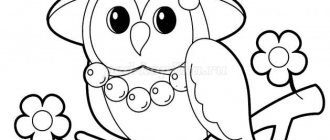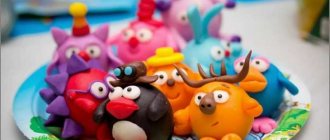Fruit theme PNG images | Vector and PSD files
- fruit theme orange cartoon illustration
2000 * 2000
- fresh natural fresh banana fruit theme poster
1200 * 1200
- fresh fashion strawberry summer fruit theme poster
1200 * 1200
- Blueberry fresh fruit theme poster
1200 * 1200
- Fresh summer fruits theme poster
1200 * 1200
- Fresh summer fruits theme poster
1200 * 1200
- avocado summer fresh fruit theme poster
1200 * 1200
- fruit theme citron illustration
2050 * 2000
- natural fresh summer pineapple fruit poster
1200 * 1200
- fruit theme banana illustration
2000 * 1999
- fashion fresh simple summer fruit t theme poster
1200 * 1200
- fashion fresh simple summer fruit theme poster
1200 * 1200
- fresh fashion simple watermelon fruit theme poster
1200 * 1200
- fashion simple summer fresh orange fruit theme poster
1200 * 1200
- fashionable simple summer poster with fresh fruit theme
1200 * 1200
- summer fresh fashion simple orange fruit theme poster
1200 * 1200
- fashion fresh simple orange fruit poster
1200 * 1200
- fresh fashion simple summer fruit theme poster
1200 * 1200
- peach fruit pattern
2000 * 2000
- fruit theme with lemon
2000 * 2000
- natural fashion simple summer fresh fruit poster
120 0 * 1200
- fashionable simple fresh summer poster with fresh fruit theme
1200 * 1200
- fruit theme lemon cartoon illustration
2000 * 2000
- red strawberry style summer fresh fruit theme poster
1200 * 1200
- Fruit themed calendar for November
4267 * 5705
- Fire dragon summer fresh fruit theme poster
1200 * 1200
- Fruit theme tomato illustration
2000 * 2000
- vegetable and fruit theme decorative photo paper
1200 * 1200
- modern fashion fresh simple summer watermelon fruit poster
1200 * 1200
- mobile app fruit theme icon design
1024 * 1369
- fruit theme lemon hand drawn illustration
2000 * 2000
- fruit theme co illustration conut
2000 * 2000
- fruit theme banana illustration
2000 * 2000
- modern fashion simple summer fresh fruit theme poster
1200 * 1200
- summer fruit theme poster border
3543 * 5315
- Fashionable vintage poster with banana fruit theme
1200 * 1200
- Creative peach woman fruit theme illustration
2000 * 2000
- Chinese style summer fruit theme border
3543 * 5315
More ideas for decorating with fruit themes
About two years ago I found an amazing retro fruit print at a Flatstock poster show in Austin, Texas.
I didn't know where I would put it, but I knew I needed it. Then I came home and decided that the only place for fruit art was in the kitchen, and since there was no room for it on the walls of my cooking space, the print had to be kept in my art drawer for the time being. be. Last week I came across the photo below of a child's room decorated with fruit:
[by Azevedo Design Inc.] Contemporary Fruit Nursery
Not that I needed permission to bring fruity interior design into other parts of the house, but this gorgeous interior has reignited my passion for fruit motifs and given me the go-ahead to hang my adorable print purchase wherever I please! Following on from our recent post on decorating with fruit, today we're exploring three ways fruit themes can make a statement in your home. And why they shouldn't just be limited to the kitchen...
Fruits on display
Okay, let's start with the obvious.
Real fruits can be placed in your home as a decoration for a room, table or surface.
Yes, it's that simple! After all, you're probably eating fruit. Why hide it in the pantry or refrigerator? Below we see a hanging basket filled with gifts from nature .
[from Soorikian Architecture] Hanging Fruit Basket Don't forget that fruit is the perfect way to add color to a neutral space . Grey, taupe, black and white may be the signature colors of this kitchen, but somehow the room doesn't come alive without a two-story wire baskets of oranges and lemons that sit on the kitchen island. [by Artdecor Interior Designers & Decorators]
Fruits at the center of the modern kitchen
A bowl of fruit works wonders. But don't be afraid to find unconventional ways to showcase your products . In the next image we see a long and narrow assortment of produce such as oranges, lemons and tomatoes.
Notice how the shape and bright red color of the stand continues the modern tone set by this modern kitchen. [by Blount Design] Products in the modern kitchen
Who doesn't love a glass jar filled with delicious fruit ? This decorative element is a key feature of bistro kitchens like the one shown below. [by Peter Zimmerman Architecture]
Canisters of fruit in a bistro style kitchen
We know the holidays are still a long way off, but who doesn't love a little Christmas in July? There is nothing more festive than a large selection of fruits and other products. In fact, this approach can be applied to any holiday or season, including summer. Fill a long tray with groups of fruits, such as citrus fruits. will create a tropical flavor! [from Regina Gust]
Christmas decorations with fruity notes
Even if a fruit display isn't the centerpiece of the room, it can still be the centerpiece of your shelf or countertop.
Drawing lesson Fruits in the middle group of kindergarten
Kindergarten teachers love art lessons. And one of the interesting activities is where children learn to distinguish fruits from vegetables and berries. Sometimes even an adult cannot do this. For example, did you know that a banana is a berry? And children should know. The topic is, of course, difficult, but that’s what makes it interesting. Today we will tell you how to conduct a lesson on drawing fruits in the middle group of kindergarten.
Drawing with watercolors
To interest children, you need to present them with drawing not as an activity, but as an exciting game. Then the child will approach the process creatively. Drawing fruits in the middle group of kindergarten begins with an introductory lecture. The teacher asks the children what their favorite plant-based sweets are. The guys actively take part in the discussion. You can hear options: apples, pears, bananas, strawberries. The teacher shows the pictures and explains which of the above are fruits and which are not. After the theoretical part there should be a practical one. Children are given watercolors, and the teacher tells them how to draw, for example, an apple. It needs to be explained with an example. The teacher draws a fruit and the children copy it. First you need to draw an outline with a pencil. The teacher controls this stage of work. And then the outline should be painted over. The teacher’s task is to prevent children from going beyond the drawn boundaries.
Drawing with gouache
All creativity with paints is somewhat similar. So, drawing fruits in the middle group with gouache is not much different from creativity with watercolors. But it is necessary to change techniques at least so that children can see the difference in paint consistency. Gouache drawings turn out much brighter and more positive. In order not to repeat techniques, the teacher can invite his students to draw a fruit, for example a pear, without a preliminary pencil sketch.
This way the child will develop his eye and will not be afraid to create. After all, parents often discourage the desire to draw because they want to get the perfect result. The child enjoys the process itself.
Draw with your hands
Many people think that painting without a brush is the province of two-year-olds. Adult children need to create with a brush. But that's not true. A child remains a child, and pampering gives him pleasure. Therefore, the teacher may well include in the program the task for the middle group “to draw fruits using fingers and palms.” It is worth understanding that many children have little imagination, and before awakening it, you need to show an example of how to create. Therefore, having rolled up her sleeves, the teacher should be the first to dip her palm in the paint and draw, for example, an orange. Children must repeat this action. And then you can give an imagination task. For example, draw your favorite fruits and berries. Sometimes you can only be surprised how limitless a child's imagination can be.
Drawing using the grattage technique
But you shouldn’t give your child watercolors and gouache at every lesson. You can use other, no less interesting techniques. One of these is grattage. Students in the middle group will definitely like the technique. Drawing vegetables and fruits will be more fun if you have to “extract” them from the ground. For this activity, the teacher will need to prepare creativity sheets. By the way, children can also help at this stage. Preparation technology:
- Use colored pencils or crayons to paint over the entire surface of the sheet.
- Lubricate the paper with a thick layer of wax or paraffin.
- Paint the entire sheet with black gouache and let it dry. To prevent the paint from remaining on the pupils’ hands, it is necessary to dilute it with PVA glue before applying it to the paper.
When the preparation is complete, you need to start drawing. You can draw with a pen or a blunt pencil. The object should be sharp enough to scrape off the paint, but not sharp enough to scratch the child.
We draw fruits, vegetables or entire still lifes on a sheet of paper. The topic will depend only on the imagination of the teacher and the patience of her charges.
Draw with a pencil
The most hassle-free option is to conduct the lesson without paints. And you won’t have to wash the children, and neither will the tables. You can draw using colored pencils. This is a rather trivial activity, but it is simply necessary for the development of children's motor skills. When a child paints with paints, he does not have to make an effort so that the brush leaves a mark. But when drawing with a pencil, you need to use not only the muscles of your hand, but also patience. Drawing fruits and berries in the middle group of kindergarten is a fun activity. The main task of the teacher is, without reproaching the child, to convey to him that it is impossible to crawl beyond the contours of the drawing. And if he really wants to, he must first draw the fruit with a pencil and only then give it clear boundaries.
Drawing with cellophane
One of the interesting techniques for depicting fruits is drawing with a bag.
Children are curious to see how ordinary materials can be used for unusual purposes. So, let's get creative. We take the bag and start drawing our favorite fruits. The average kindergarten group may not understand why they were given cellophane instead of regular paper. Here the teacher must say that not all creative work is done on paper. Artists paint on canvas, fiberboard, etc. When the fruits are ready, we moisten clean sheets of paper in water and cover the cellophane masterpieces with them. The print can be detailed. For example, draw a twig and a leaf on an apple.
Plasticine drawing
Children have already realized that they can create not only with paints. So it’s time to conduct a lesson on drawing fruits in the middle group using plasticine. It is necessary to explain to children that plasticine is used not only by sculptors, but also by artists. It is most convenient to use a white disposable plate as a canvas. Using a pencil, the teacher or the children themselves draw the outline of the fruit. And then it remains a matter of little things.
You need to fill the outline with small pieces of plasticine. You need to try to imitate a stroke. Children are unlikely to succeed the first time, but oh
Drawing lesson “Healthy fruits” (second junior group)
Abstract No. 10
Subject:
"Healthy fruits"
Target:
Teach children to hold a pencil correctly, without squeezing it too much; draw with a pencil and carefully paint over the outline. Strengthen the ability to distinguish colors.
Educator: To grow and develop
You need to eat right.
Always clean water
Wash fruit before eating.
The teacher invites the children to look at a picture of a basket with different fruits:
-Let's see what is shown in the picture? (fruits)
-What fruits are in the basket? (bananas, orange, apples, grapes)
-Let's look at them carefully: what color are bananas (orange/apples/grapes)? (yellow/orange/red and yellow (or green)/purple)
Finger gymnastics “Compote” We will cook compote. We need a lot of fruit, here it is: (hold the left palm with a “ladle” and stir with the finger of the right hand) We will chop the apples,
(bend fingers one at a time, starting with the thumb) We will chop the pear.
Squeeze out the lemon juice, add the drain and sand. We cook and cook compote. Let's treat honest people.
(fingers clenched into a fist, thumb pulled up)
The teacher suggests drawing the same fruit basket as in the picture:
-The children are given album sheets on which the outline of a basket of fruit is drawn;
-The teacher teaches children to hold a pencil correctly: with three fingers, just above the sharpened part, without squeezing it too much; while working, hold the sheet of paper with your left hand;
-Demonstration of techniques for carefully painting an outline;
-Independent work of children;
-Exhibition of children's works.
On the topic: methodological developments, presentations and notes
Game activity for kids. The game moment increases the interest of children. Exercises with peas, beans, and finger games help maintain interest. Throughout the lesson, children are active: they act.
Summary of a drawing lesson 2nd junior group Topic of the lesson: “Help the mother hen find the chickens Goal: To introduce children to a new way of drawing - poking along the contour. Call .
Drawing a dandelion using the “poke” method.
Summary of a drawing lesson (first junior group) “Buds on a branch” (finger drawing) Purpose: Educational area: Improve children’s ability to use non-traditional images.
Summary of a drawing lesson in the junior group “Cheerful Rain” (Non-traditional technique: drawing with cotton swabs).
Goal: to develop the creative abilities of children. Objectives: • Develop a plot and game concept; • To consolidate children’s knowledge on the topic “Clothing”; • To arouse interest in drawing p.
Source


